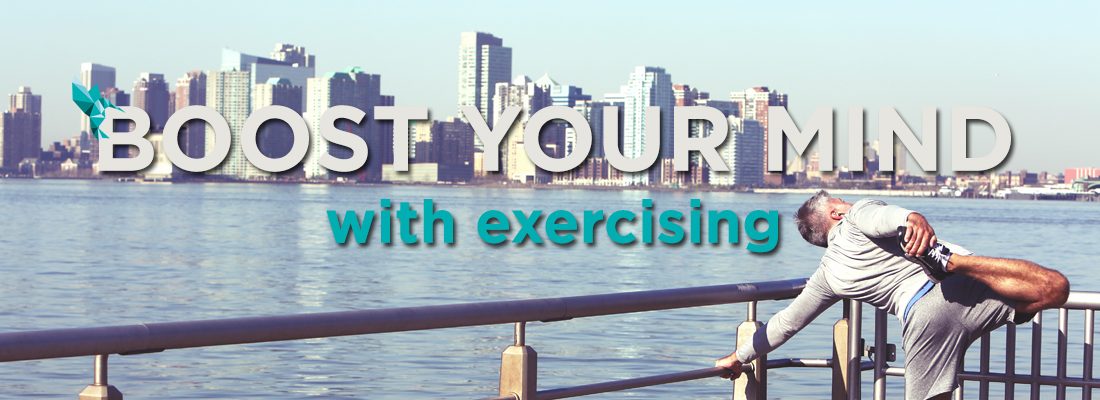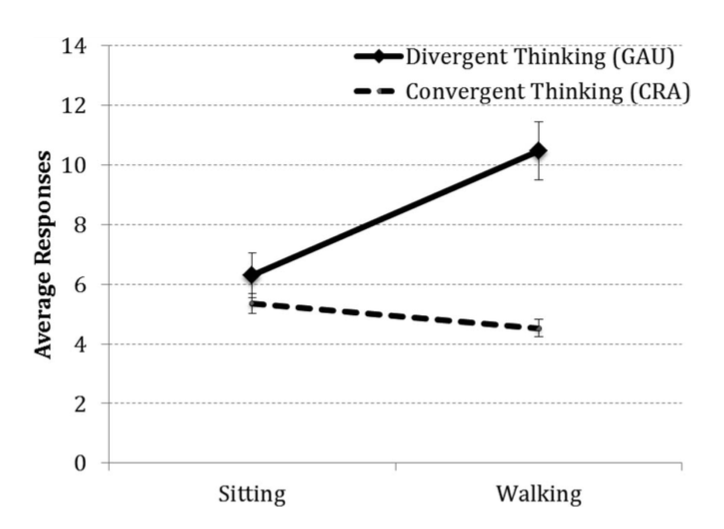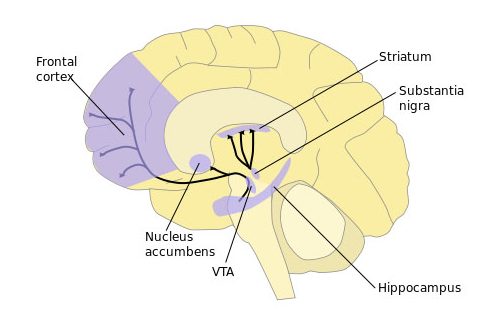
5 ways to boost your mind with exercising
A lot of people exercise to become fitter, lose weight or strengthen their muscles. But do you know that working your body’s muscles also actually benefits your grey matter? This overview might help you choose the best ways of exercising to optimise your mind for specific mental challenges due to physical preparations.
You know that ‘an apple a day keeps the doctor away’. But healthy food combined with a little exercise would leave half the doctors in our world unemployed. Several studies have proven the link between body-fitness and mental health. It increases your stress resilience, it protects against dementia and it boosts your mind. This overview shows five ways to get this done, starting from the easiest one to implement:
Boost your creativity
More than a decade ago, Friedrich Nietzsche (1889) told us already that walking improves your imagination. He said that “all truly great thoughts were conceived by walking.” Nowadays, several studies demonstrate that walking indeed increases creative ideation. It doesn’t really matter if you walk around in a boring room or if you go for a stroll outside. It both stimulates divergent thinking and creative processes. Note that it won’t help you if you’re struggling with a single-solution question. As you can see in this graph walking will decrease the average responses of convergent thinking.

Forever young
Going for a 30-minutes walk three times a week will help you keep your brain healthy, even when you’re getting older. At this moment, 44.4 million people have dementia worldwide. According to Alzheimer Disease International, this could be up to 75 million in 2030. Taking your brain for a walk can help to delay the start of dementia and reject the mental wear and tear: it slows down the shrinking of the brain.
Grow your hippocampus
Aerobic exercises (whereby oxygen is used to burn glucose and fats), at a moderate level of intensity for an extended period of time, grow your hippocampus. This part of your brain reacts strongly to these types of performance, it expands when you get fitter. The hippocampus is the most important learning and memory system. Taking care of your ‘hippo’ provides you with a serious memory boost. I have the privilege to work in the same city as where I live: Rotterdam. This means that I cycle to work every day, 20 minutes back and forth. It gives me the opportunity to have learning processes during practices, which helps me with improving memory formation. According to German research walking and cycling whilst rehearsing a foreign language makes the vocabulary stick better.
Stay focused
It appears that workouts don’t have to be exhausting all the time to achieve a direct outcome. Interspersing exercises, like you did in high school, will already have a positive effect on your brain. For example, Dutch school children became more adept at ignoring distractions and multitasking. Their executive control improved. Speaking for myself, this would be the main reason to exercise more. It would make me a lot more productive in a less amount of time when I would be able to get less easily distracted.
Get up, stand up
An average office worker sits 10 hours a day. Most of these hours are spent at the office, during meetings or staring at a computer. In the afternoon it prolongs itself by, for example, sitting in front of the television. It might not look like the toughest one, but the strange thing is; knowing the disadvantages of sitting the whole day doesn’t really make us stand up. I have a standing desk myself, but to be honest I do not really make use of it… Actually, we have to work standing up at least two hours a day and four hours would be even better. We should try to move more, even if we’re not actively exercising. Get up and find something you enjoy! It might bring you a lot more you’d expect.
And discover how Queal can support your athletic lifestyle.



No Comments